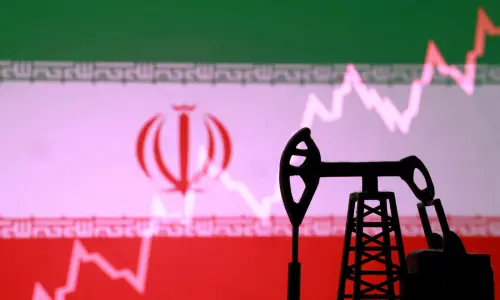ON Oct 10, Prime Minister Imran Khan announced the creation of Naya Pakistan Housing Authority (NPHA) in line with PTI’s manifesto promise of constructing five million houses. Reportedly, the authority is mandated to develop policies and facilitation mechanisms for housing projects across the country. The prime minister has declared he will personally oversee the working of this authority to monitor progress and remove any obstruction that may arise in inter-departmental coordination.
The creation of NPHA raises a number of questions about the legal and administrative framework within which it will operate, its relationship with the existing set of authorities, its conceptual alignment with the devolution of power, etc. The performance of earlier national housing authorities and their fate also needs to be analysed. Besides, housing is a provincial subject as per the 18th Amendment, and the role of federal and provincial departments and their working relationship may also emerge as thorny issues.
Retrospective analysis reveals that the federal government, for many reasons, reduced its role from a direct player in the housing sector in the early 1950s to a catalyst in the recent past. Firstly, housing is a capital-intensive sector. With its shrinking financial resources, the government cannot directly participate in housing development. Secondly, land which is the most valuable resource for developing housing is becoming scarce and expensive. State land is in limited supply and mostly controlled by provincial boards of revenue. And lastly, housing loans are a risky business as per banks’ perception.
In a country where tenant-landlord relations in the housing sector are generally riddled with disputes and conflicts, kick-starting a mortgage based finance programme for housing needs a cautious review. Those most lacking housing choices/options in society are the urban poor. They are constrained by market economy practices which have reduced land from a collective asset of the society to a marketable commodity.
The urban poor must be provided land purchase loans.
One of the best options is to empower the urban poor to have appropriate access to land. Ironically, existing credit mechanisms only favour those who already own land and need credit to build. Unless the poor are consciously targeted for provision of land purchase loans through a carefully devised mechanism, they will remain without housing. Credit disbursement must take into account the documentation handicaps of daily wage earners and labourers.
Land records are in gross disarray throughout the country. Similarly, new schemes, packages and programmes are announced through communication strategies unfamiliar to the poor. Breaking the information barrier can benefit the poor. For example, in the Khuda ki Basti project in several cities in Pakistan, the staff directly approached low-income areas, informed residents about the project and explained its various benefits. This also helped identify the truly needy. It is vital that the government understand the usefulness of such approaches and promote them accordingly.
It has been found that credit for housing without technical advice is misutilised and unable to generate the desired result. At present, the local masons and building component manufacturing yards are the only outlet for technical advice. By strengthening their technical capacities and linking them to their clientele, sound housing stock can be generated with cost-effective output.
Action research and extension of appropriately developed solutions can certainly resolve such contextual problems. But such approaches can only work if assigned a flexible time and management option. Experiences in Orangi in Karachi are a case in point.
The federal government must understand its resource limitations and shortcomings of outreach. It should create a favourable environment where the private sector can enter into fruitful partnerships for housing development. Unfortunately, there is no past precedent of this particular concept in Pakistan with respect to housing. While the concept of public-private partnership is still valid and has great potential, it requires political will and scientific business plans by the government to involve the private sector in gainful housing enterprises.
The government must enact effective foreclosure laws to safeguard allottees’ ownership rights which will also prevent mortgage defaults as people will take caution in paying the loans back. Tax relief and incentives to the producers of building material are also desirable. Unless this is done, housing will remain largely unaffordable for the majority of the people.
Besides this, effective measures are required to prevent speculation in these initiatives. Plots and houses in past schemes were mostly appropriated by investors. The implementation of housing programmes should also be locally administered. Centrally dominated housing packages normally crash without achieving the desired objectives.
The writer is chairman of the Department of Architecture & Planning, NED University.
Published in Dawn, October 16th, 2018





























